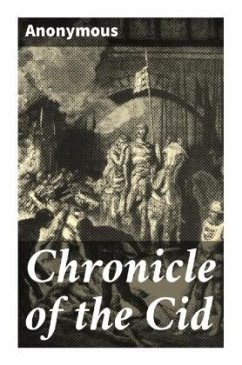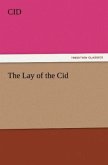The "Chronicle of the Cid" is a remarkable medieval epic that chronicles the life and exploits of the legendary Castilian nobleman Rodrigo Díaz de Vivar, known as El Cid. This literary work blends historical narrative with poetic elements, showcasing the heroic ethos of the Reconquista period in Spain. Composed in a style that intermingles prose and verse, the chronicle captures not only El Cid's military endeavors but also the cultural tensions between Christians and Muslims, reflecting the complex social fabric of 11th-century Spain. The text serves as both a historical account and a tribute to chivalric ideals, emphasizing concepts of honor, loyalty, and the divine right of kings through rich imagery and a captivating narrative structure. The true identity of the author remains shrouded in anonymity, yet the chronicle is believed to have been composed by a contemporary of El Cid, possibly a cleric or a minstrel who sought to preserve the heroic legacy of this emblematic figure. This anonymity itself speaks volumes about the collaborative nature of medieval literature, where oral traditions and historical events coalesce into a collective cultural memory that transcends individual authorship. For readers intrigued by the intersection of history and legend, this text offers profound insights into the formation of Spanish national identity. The "Chronicle of the Cid" is not merely a tale of conquest; it is an exploration of virtue against a backdrop of war and cultural exchange. This seminal work is essential for anyone wishing to understand the roots of Spanish literature and the persistent themes of honor and valor in human history.
Bitte wählen Sie Ihr Anliegen aus.
Rechnungen
Retourenschein anfordern
Bestellstatus
Storno








